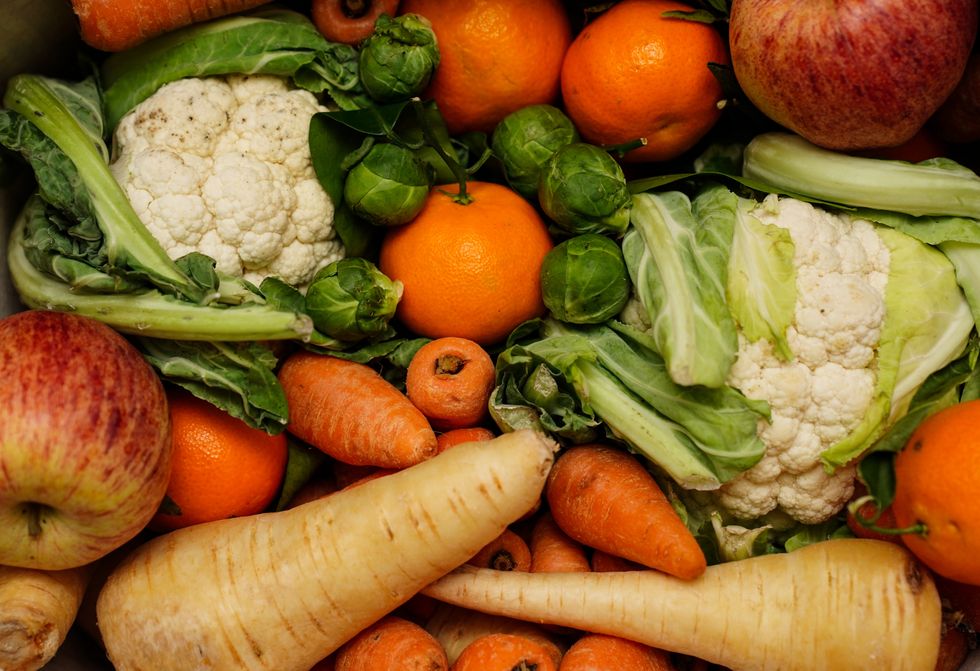Most people know they should be eating fruits and vegetables every day, but many Britons are not consuming enough, according to new research.
Speaking exclusively to GB News, an expert shared the serious consequences of missing out on fresh produce.
The research by Juice Plus+ showed a huge three quarters of Britons do not think they are eating enough fruits and vegetables.
On top of that, more than half don’t think they can identify what counts as a portion.
Many Britons don’t eat enough fruit and vegetables
GETTY
The NHS recommends Britons should eat at least five portions of fruit and vegetables a day, with an portion equating to 80 grams.
Registered nutritionist Sue Oldreive told GB News the health problems people could face if they don’t eat enough.
Lowers the risk of disease
Eating fruit and vegetables has many benefits, including lowering the risk of diseases.
Sue said: “Diets high in fruit and vegetables are linked to a lower risk of diseases like heart disease, stroke and some types of cancer.
“Whilst these are long-term benefits of eating plenty of fruits and veg, there are some simple facts that may help explain why they support health and wellbeing.”
Source of fibre
Sue explained: “Fruits and vegetables are usually fairly low in calories but add volume to our diets due to the fibre and water they contain.
“As such, including them as key components in meals, or as snacks, can help displace other high fat/sugar/salt/calorie foods from our daily diets.
“Thus, eating more fruit and veg may mean you eat less of the foods that are negatively associated with health. This can be impactful in weight management.
“We should all be aiming to eat more fibre, with current intakes at around 18g a day compared with the target of 30g a day.
“Adequate intakes contribute to a healthy digestive system. Many fruits and vegetables are an excellent source of fibre and often high in water too, which can help avoid nasty hard poos, straining and frustrating toilet time.”

An expert shared a health warning of not eating enough
PA
Source of vitamins and nutrients
Sue continued: “Fruits and vegetables are hugely important sources of many vitamins and minerals.
“They contribute significantly to potassium intakes, with research showing that people with high (compared to low) potassium intakes had a lower risk of heart disease and stroke.
“The plethora of phytonutrients in fruits and vegetables have been associated with anti-inflammatory and antioxidant effects, in addition to emerging data which suggests one group of phytonutrients – polyphenols – may encourage a better balance of bugs in our gut microbiome.
“Some vegetables, such as onions, leeks, garlic and artichokes, contain inulin which can help those friendly bugs flourish, supporting gut health but maybe also influencing our wider wellbeing, from skin to brain and beyond.”

Sarah Carter is a health and wellness expert residing in the UK. With a background in healthcare, she offers evidence-based advice on fitness, nutrition, and mental well-being, promoting healthier living for readers.








